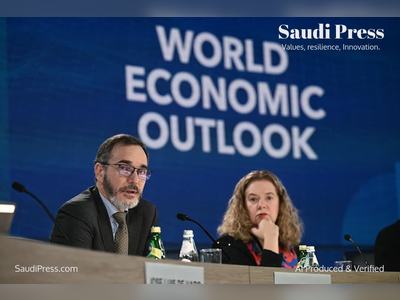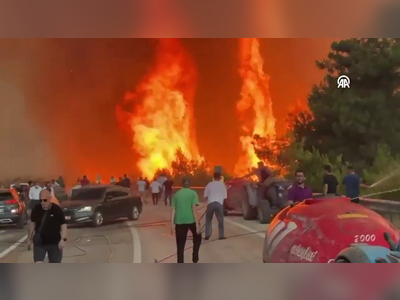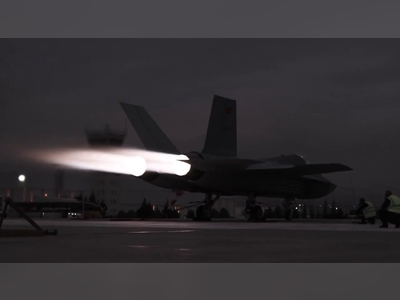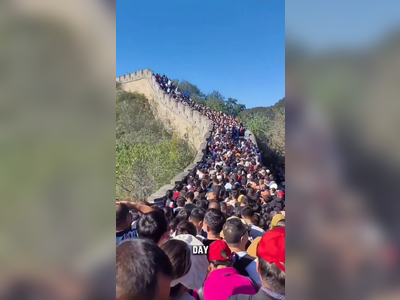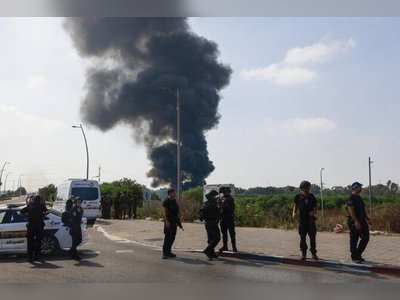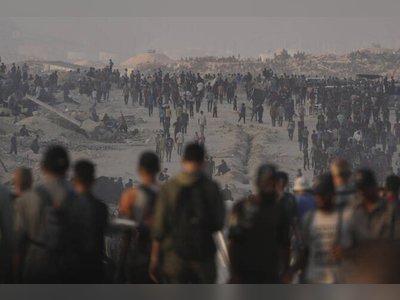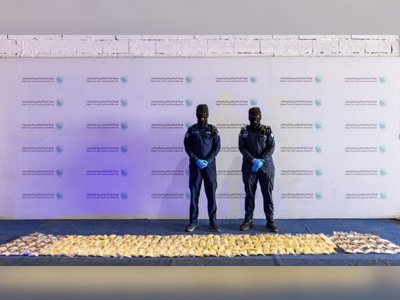Global Updates: Crimea Evacuations After Oil Terminal Fire, High Voter Turnout in Kashmir, and Indonesia's $28 Billion Nutrition Program
Ukrainian strike prompts evacuation after fire at Crimean oil terminal; no casualties reported.
Over in Crimea, more than 1,000 people have been evacuated after a fire broke out at a large oil terminal in Feodosia, believed to be the result of a Ukrainian strike. Although the blaze caused significant disruption with road and train closures, fortunately, no casualties have been reported, and air quality remains unaffected for now. This comes as Ukraine aims to retaliate against Russian aggression targeting its own energy infrastructure.
Meanwhile, in Indian-controlled Kashmir, the first local government election since 2019 saw a high voter turnout of 64%, potentially signaling a shift against Prime Minister Modi's policies. Early results suggest that the National Conference, in alliance with the Congress Party, may become the largest party, reflecting a possible change in public sentiment following the revocation of the region's special status.
In France, authorities have deported Omar Binladin, Osama bin Laden's son, over social media posts that glorified terrorism, highlighting concerns over online platforms' role in spreading such content. The action follows a police investigation in Normandy, where Binladin lived with his British spouse, coinciding with his controversial comments made in 2023.
Turning to Uganda, a new case of mpox has surfaced in Nakasongola jail, underscoring ongoing public health challenges in the country. The World Health Organization had previously declared mpox a public health emergency and Uganda's mpox cases have now risen to 41, with health officials diligently monitoring the situation.
Over in Indonesia, a bold new initiative is set to launch in January 2025 with a $28 billion program aiming to combat malnutrition by providing free meals to students and mothers. With plans to reach up to 83 million recipients, this program is set to boost local agriculture and will initially mobilize 5,000 service units, eventually expanding to 30,000 by 2027 under President-elect Prabowo Subianto.
Finally, Pope Francis continues to reshape the Catholic Church's leadership with the appointment of diverse cardinals from Haiti, Myanmar, Mongolia, and beyond, enhancing global representation. By selecting leaders from underrepresented regions, Pope Francis aims to foster a more inclusive church while limiting traditional power dynamics in choosing his successor.
Meanwhile, in Indian-controlled Kashmir, the first local government election since 2019 saw a high voter turnout of 64%, potentially signaling a shift against Prime Minister Modi's policies. Early results suggest that the National Conference, in alliance with the Congress Party, may become the largest party, reflecting a possible change in public sentiment following the revocation of the region's special status.
In France, authorities have deported Omar Binladin, Osama bin Laden's son, over social media posts that glorified terrorism, highlighting concerns over online platforms' role in spreading such content. The action follows a police investigation in Normandy, where Binladin lived with his British spouse, coinciding with his controversial comments made in 2023.
Turning to Uganda, a new case of mpox has surfaced in Nakasongola jail, underscoring ongoing public health challenges in the country. The World Health Organization had previously declared mpox a public health emergency and Uganda's mpox cases have now risen to 41, with health officials diligently monitoring the situation.
Over in Indonesia, a bold new initiative is set to launch in January 2025 with a $28 billion program aiming to combat malnutrition by providing free meals to students and mothers. With plans to reach up to 83 million recipients, this program is set to boost local agriculture and will initially mobilize 5,000 service units, eventually expanding to 30,000 by 2027 under President-elect Prabowo Subianto.
Finally, Pope Francis continues to reshape the Catholic Church's leadership with the appointment of diverse cardinals from Haiti, Myanmar, Mongolia, and beyond, enhancing global representation. By selecting leaders from underrepresented regions, Pope Francis aims to foster a more inclusive church while limiting traditional power dynamics in choosing his successor.
